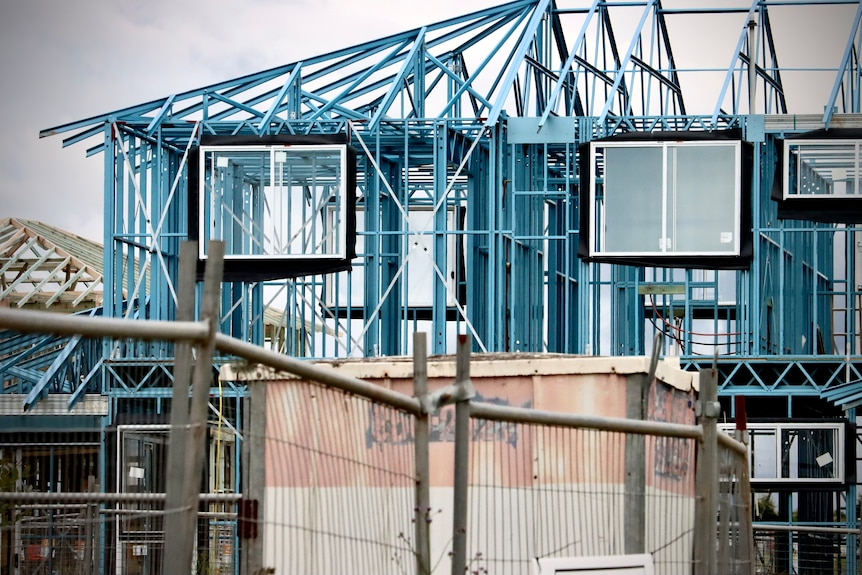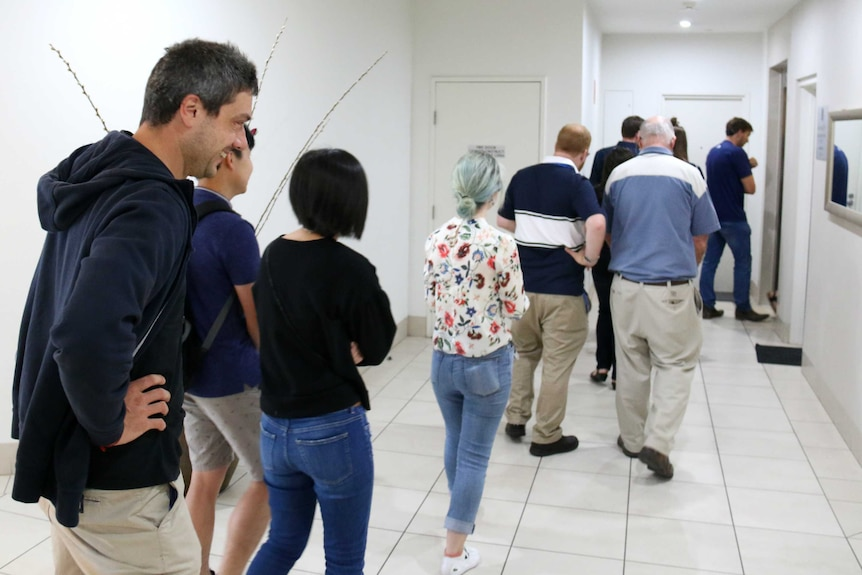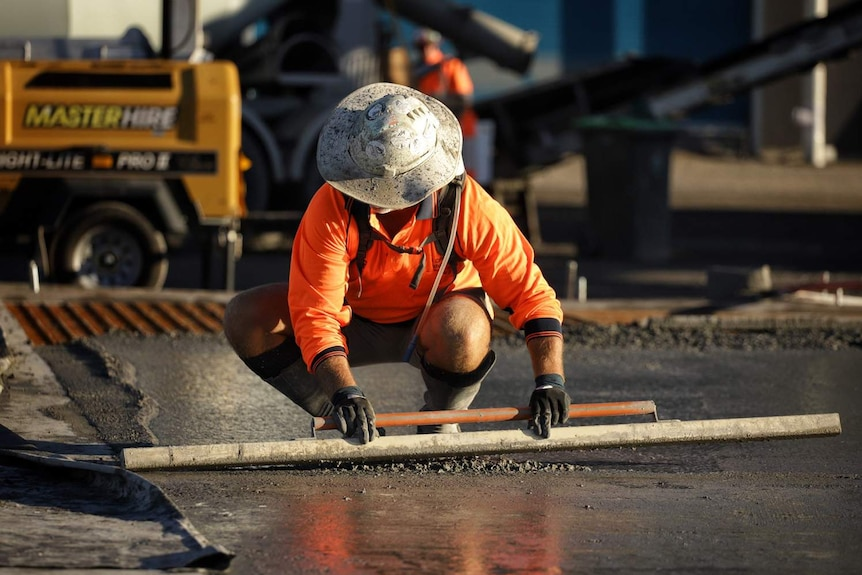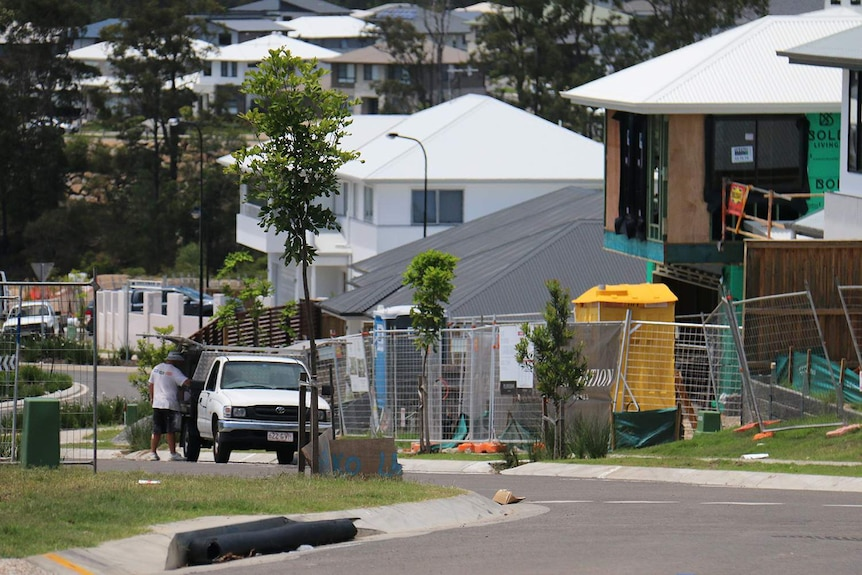The uncomfortable truth about record high immigration levels, rents and inflation
You could call them the four "I"s of our economy. And they've now collided in spectacular fashion.
Almost all of us have been obsessed by just two: inflation and its impact on interest rates.
But there are another two that need to be brought into the equation: immigration and the need for infrastructure.
Every economist, from Reserve Bank governor Michele Bullock down, admits that interest rates are a blunt weapon that disproportionately affects different segments of Australian society, particularly younger Australians who bought real estate in the past three years.
But for a large number of economists, it is the only weapon. Many refuse to even consider alternatives, primarily because they shy away from a debate that has become socially and, occasionally, racially charged. And yet, they're often more than happy to continue to push for ever higher interest rates.
In the past fortnight, inflation pressures eased substantially in both the United States and the United Kingdom. While it is declining here, it is at a much slower pace than the RBA would like, which forced it to raise rates on Melbourne Cup Day.
That's provided ammo to the hawks, who've bolstered their calls for even more rate hikes. And last week, the federal government announced it would take a scythe to infrastructure spending in a bid to relieve inflation pressures following prompts from the International Monetary Fund.
That IMF report also pumps for more rate hikes. But like many others, while it acknowledges the root cause of our high inflation, it doesn't consider the obvious solution and skirts the fundamental problem.
"Rents have also increased at a very fast pace, with strong growth in immigration following the post-COVID re-opening adding to pressures, given the housing shortages," it notes.

The chronic shortage of housing has pumped up the demand for rental properties — and in turn, weekly rents.(ABC News: John Gunn)
A homegrown crisis
We are in the midst of a full-blown rental crisis.
Just on a third of all Australian households rent and many are finding it difficult to keep their head above water. These are the forgotten victims of the most recent onslaught of higher interest rates and super-charged living costs.
Rents have been soaring for most of the past year and vacancy rates, at just 1.1 per cent across the nation, according to property data firm PropTrack, are now at their lowest levels in history.
Our immigration intake, meanwhile, is running at record levels with up to 600,000 arrivals expected this calendar year. If we continued at that rate for four years, there'd be enough people to fill a city the size of Brisbane.
And here's another little snippet highlighted by the most recent inflation data from the Australian Bureau of Statistics: Rents now are growing at their fastest pace in 14 years and are a key factor driving our inflation.
According to the ABS, rents account for about 6 per cent of the Consumer Price Index, making it the second-largest contributor to the index.
"Understanding the rental market is important for policymakers as it has implications for patterns of consumption and savings by households, as well as inflation," it warned back in April.
And yet, despite the overwhelming evidence, few appear willing to confront one of the key forces driving inflation.
Rather than whack everyone with ever higher interest rates because rents are going crazy, wouldn't it make more sense to simply scale back the level of immigration, even temporarily, to take the pressure off rents and help lower inflation?
All those people arriving need somewhere to live and the increased demand is driving rents higher.
It's a problem likely to compound into the future.
It takes years to build a house or a block of units. Then consider that vast numbers of builders have gone bust and that new dwelling approvals have this year slumped to decade lows partly because of soaring interest rates.
This is not, and should not be, an argument about immigration, multiculturalism, race or diversity. It's an issue that revolves around simple arithmetic.

Record-low vacancy rates coupled with rising demand means there is increased competition for rental properties around the country.(ABC News: Jordan Hayne)
The IMF strikes again
The IMF is a textbook case of how intelligent individuals become consumed by textbook solutions to real-world problems. Who could forget its disastrous stipulation to nations left impoverished by the Global Financial Crisis to embark upon austerity programs?
Its report on Australia a fortnight ago neatly glosses over the nub of the issue. Rather than suggest scaling back the intake of new arrivals, it instead proposes to scale back on the necessary infrastructure needed to accommodate those new arrivals.
"The Commonwealth Government and state and territory governments should implement public investment projects at a more measured and co-ordinated pace, given supply constraints, to alleviate inflationary pressures," it wrote.
One of the biggest problems we've faced since the turn of the century is that our politicians have been more than happy to import people but they've been unwilling to spend the required money on ensuring our cities work properly.

Failing to properly invest in public infrastructure has compounded the problems we're now facing.(ABC News: Chris Gillette)
For decades, until COVID hit, we used to boast about being the miracle economy. No recession in 30 years! Technically, it was true. Our GDP climbed each and every year. But it was off the back of one of the biggest immigration programs in the developed world. Adding more people adds to the size of your economy.
Without the necessary extra investment in transport, health and education, however, our cities became more difficult to traverse, reducing worker productivity, and became some of the most expensive places in the world in which to live.
When the September-quarter GDP figures lob, they're likely to show that without immigration, the economy would already be in recession.
While the IMF may have a legitimate argument that we should be more sensible about infrastructure spending, that can't be achieved with immigration rates running at twice the normal level.

The next release of GDP figures will likely show the economy would be in recession without immigration.(ABC News: Liz Pickering)
Can rate hikes lower rent?
Immigration in the post-war era has transformed Australia into a vibrant society with an array of rich cultural heritages from across the region and around the globe.
From a social cohesion viewpoint, the program has been an outstanding success.
For it to continue to work, governments both state and federal need to address the structural issues that arise from a rapidly increasing population.
Housing is one of the paramount issues.
Trying to pretend there is only a loose relationship between the huge lift in immigration and the sudden increase in rents — which is fuelling inflation — is likely to create more serious social problems in the future.
It's a problem that won't be fixed by yet another hike in interest rates.








